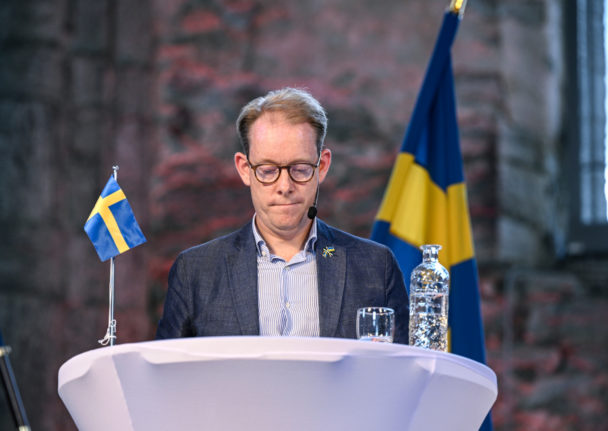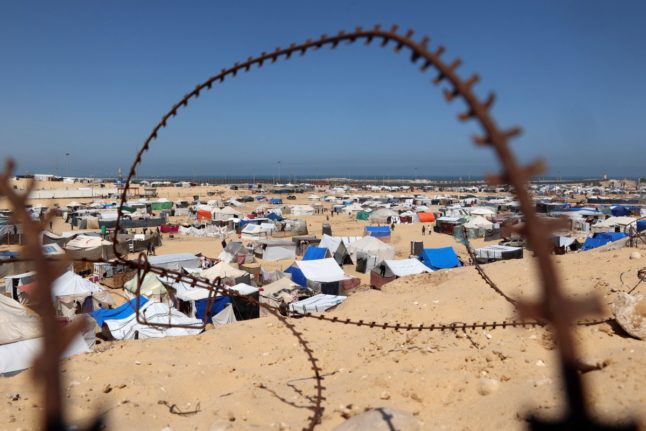“The Swedish government fully understands that the Islamophobic acts committed by individuals at demonstrations in Sweden can be offensive to Muslims,” the foreign ministry said in a statement.
“We strongly condemn these acts, which in no way reflect the views of the Swedish government,” it added.
The condemnation came in response to a call for collective measures to avoid future Quran burnings from the Saudi-based Organisation of Islamic Cooperation.
The 57-member body met at its Jeddah headquarters to respond to Wednesday’s incident in which an Iraqi citizen living in Sweden, Salwan Momika, 37, stomped on the Islamic holy book and set several pages alight.
The OIC urged member states to “take unified and collective measures to prevent the recurrence of incidents of desecration of copies of the” Quran, according to a statement released after the “extraordinary” meeting.
“The burning of the Quran, or any other holy text, is an offensive and disrespectful act and a clear provocation. Expressions of racism, xenophobia and related intolerance have no place in Sweden or in Europe,” the Swedish foreign ministry said.
At the same time the ministry added that Sweden has a “constitutionally protected right to freedom of assembly, expression and demonstration”.
KEY POINTS:
Countries including Iraq, Kuwait, the United Arab Emirates and Morocco have summoned Swedish ambassadors in protest at the Quran burning incident.
On Sunday, Iran’s Foreign Minister Hossein Amir-Abdollahian said Iran is holding off sending its new ambassador to Sweden, Hojjatollah Faghani following the burning.
Swedish police had granted Momika a permit in line with free speech protections, but authorities later said they had opened an investigation over “agitation against an ethnic group”, noting that Momika had burned pages from the Islamic holy book very close to the mosque.
In a separate statement, the Swedish foreign ministry said Swedish police were stepping up controls at Sweden’s internal borders as a result of an increased security threat due to the demonstration.
“Experience tells us that both individuals who initiate these kinds of demonstrations and individuals who are prepared to use extreme violence in response to them often come to Sweden from other countries,” read the statement.
“It can be noted, for example, that the man now being investigated for the offence of agitation against a national or ethnic group following Wednesday’s events is an Iraqi national who only has a temporary residence permit in Sweden.”
The statement added that police may prevent people from entering Sweden if they are considered a threat to “important public interests”.
Far-right activist Rasmus Paludan, whose burning of the Quran sparked global headlines in January, has Swedish citizenship.



 Please whitelist us to continue reading.
Please whitelist us to continue reading.
Can I suggest to make illegal the burning of books?
As should be after the notorious Nazi one, in my opinion.
To me it is a crime to culture, lost of knowledge, to environment, produces co2 and toxic gasses, to recycling, as it is good paper, other than an useless hazard to have flames poorly handled by unprofessional people.